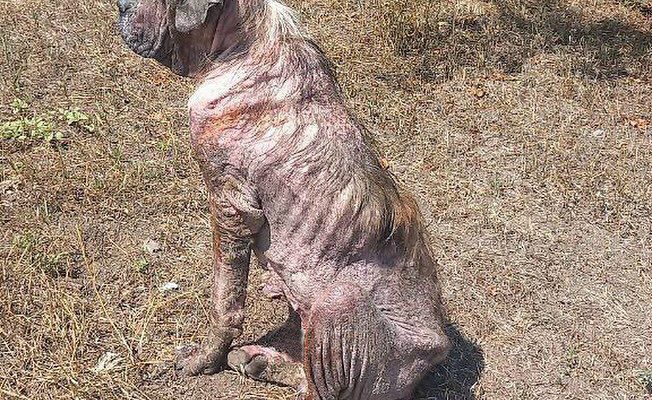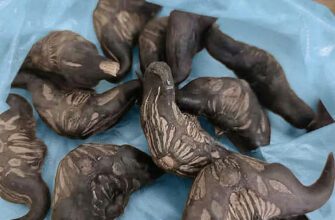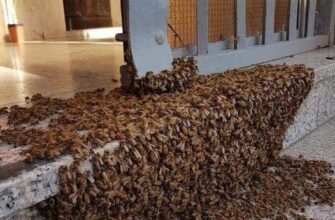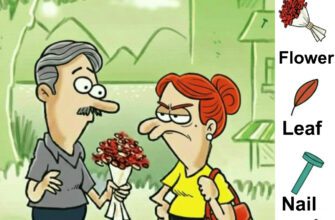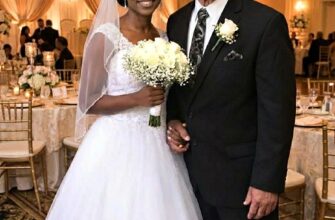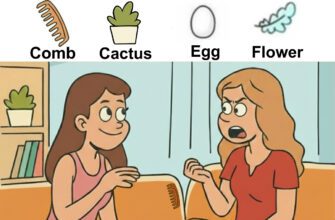— Get out of here, cur, — a scream broke the silence of the wasteland, and along with the sound a heavy stick flew. It hit the ribs, causing the dog to jerk and fall on its side.
He didn’t squeal. He didn’t whine. He just raised his head and looked in the direction where the man stood, with eyes that didn’t have a drop of malice, only emptiness and fatigue.
His skin was gray and cracked, like dried earth. The once thick fur had turned into sparse tufts sticking out on his back. His ribs stuck out so much that it seemed like one awkward movement and the skin would tear. He sat with his head down, as if he had resigned himself to the fact that no one would reach out a hand for a long time.
— Enough! — came from somewhere behind the fence. — He was wandering around our yard again!
The woman’s voice was sharp and angry, and every word pierced the air like a needle.
I stood to the side and couldn’t move. My chest was clenched. I wanted to go closer, but my legs seemed to be rooted to the ground.
«Why isn’t he running? Why is he just sitting there?» I asked myself, and the answer was too simple — I didn’t have the strength to run anymore.
He probably knew that he was being chased for the last time. That there was no more food in this place, no shade, not even a cold look that could be met to feel at least some attention. He simply turned his head towards the sun, as if he wanted to remember this light, and remained sitting.
«Go away, do you hear?!» the man swung again, but this time the dog didn’t even flinch.
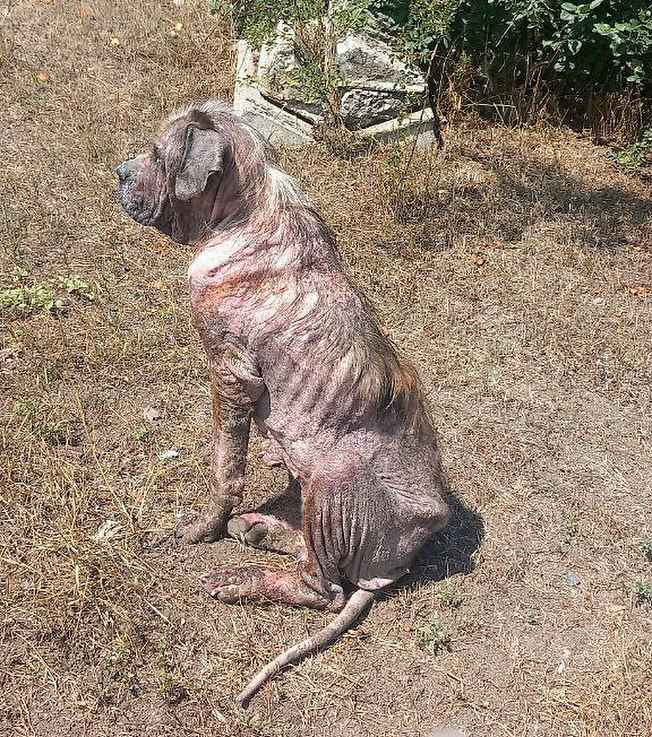
I took a step forward. Another one.
«Leave him!» my voice trembled, but I still said it. «What did he do to you?»
«He’s sick!» the man snapped. — Look at him! His whole body is covered in sores, his fur has fallen out, his eyes are cloudy. He’s dangerous, okay?
I looked at the dog and saw that the danger wasn’t in him. The danger was in us. In the people who pass by when someone is quietly dying in the sun.
I knelt down next to him. The smell was sharp, but not repulsive — just the smell of abandonment.
— Hello, — I said quietly. — So, buddy, are you tired?
He slowly turned his head and looked straight into my eyes. It was a long, heavy look, in which everything was mixed: pain, fatigue, and some strange, quiet expectation.
— I’ll take you, — I said, not believing that I said it.
The man laughed.
— You can’t save people like him. He’ll die under the fence tomorrow. It would be better if you put him to sleep.
I felt everything boiling inside.
“No,” I answered, getting up. “He’ll eat tomorrow. He’ll sleep on something soft tomorrow.”
I took off my sweater and carefully threw it over his shoulders, as if shielding him from view. He didn’t resist, only took a deep breath, as if he felt warmth for the first time in a long time.
We walked slowly. He limped, but didn’t stop. And at every step it seemed to me that he was thinking: “Is this really true? Has someone really come?”
I didn’t know how long he would live. Maybe a day, maybe a week. But at that second I knew for sure that he wouldn’t die here, on the dusty ground, under blows and screams.
And then, a couple of hours later, something happened that I couldn’t imagine…
At home, I laid an old but clean blanket in the corner of the room. He stood on the threshold for a long time, as if not believing that he could come in. Finally, he carefully stepped over the threshold and slowly sank down onto the fabric, burying his nose in its softness.
I poured him a bowl of water. He drank for a long time, noisily, as if he was afraid that the water might disappear. Then, as if gathering his strength, he raised his eyes and looked at me. In this look there was no longer that empty gray darkness that I had seen in the wasteland. Something barely noticeable appeared there — a weak, tiny light.
I called him Gray. Not because his fur was gray — it had almost all fallen out anyway — but because there was something ancient, tired in him, like in old trees or stones by the road.
The first two days he almost did not get up. I changed the bandages, washed the ulcers, dripped medicine into his inflamed eyes. He endured everything silently, without struggling, without baring his teeth. Only occasionally did his body tremble — not from fear, but from the fact that someone was finally touching the pain with care.
On the third day, I brought a bowl of warm broth and pieces of boiled fish. He sniffed it, then carefully took the first piece. And suddenly something happened that I will never forget: he froze, looked up, and… his tail trembled. Just a little. Like a light movement of a branch in the wind. This was the first sign that he was coming back to life.
A week later, he could already go outside. I took him to a small park near the house. People turned around, some turned away, some whispered that “it’s better to put these guys to sleep.” I held the leash tightly, because I knew that he was still weak, but already wanted to go forward.
And then something happened that I call a miracle.
We came to a small pond where boys were fishing. One of them, about ten years old, pulled out a silvery, flat, still fluttering bream on a fishing line. The fish was thrashing in the boy’s hands, and he, seeing Sivy, suddenly smiled.
«Do you want it?» he asked, coming closer.
I was confused.
«And what, are you going to give it to me?»
«Yes,» he nodded seriously. «He needs it more.»
He carefully lowered the bream into the bowl I was holding. Gray froze, sniffed it, and, to my surprise, began to eat it — greedily but carefully, as if he understood that it was a gift. The boy stood next to him and looked at him as if something important had just happened in his life.
The next day we came to the pond again. The same boy was waiting for us with a small bucket in which two more bream were splashing. He said that he would bring them as long as he could. And he did — every day, week after week.
Gray began to gain weight. His fur gradually grew back, the sores healed. But most importantly, his gaze changed. It became different: attentive, alive, a spark of joy appeared in it, which was previously impossible.
I often think that I did not save him. I simply took him from the wasteland. And he was saved by the breams — those silvery, fluttering symbols of new life that a little boy brought, believing that goodness is not words, but actions.
Three months later, Sivy was unrecognizable. He ran next to us when we went to the pond, wagging his tail so hard that it seemed like it could break away. And every time he saw the boy, he sat down next to me, bowed his head and waited for a fresh bream to appear in the bowl.
And six months later, Sivy simply came up to me one day, put his paw on my knee and looked into my eyes for a long time. It was his way of saying “thank you.” Without words. Without shouting. Just a look that contained everything — both the pain of the past and the warmth of the present.
Since then, we have a tradition: every summer we go to the pond, even if there is no one there anymore. I throw a piece of bread into the water, and it seems to me that somewhere in the depths the tail of that very first bream, which once gave Sivy life, is silvering.
And, perhaps, this is precisely the proof that sometimes fate is changed not by loud heroism, but by a quiet, almost imperceptible gesture. A gesture in which there is kindness.
➕
